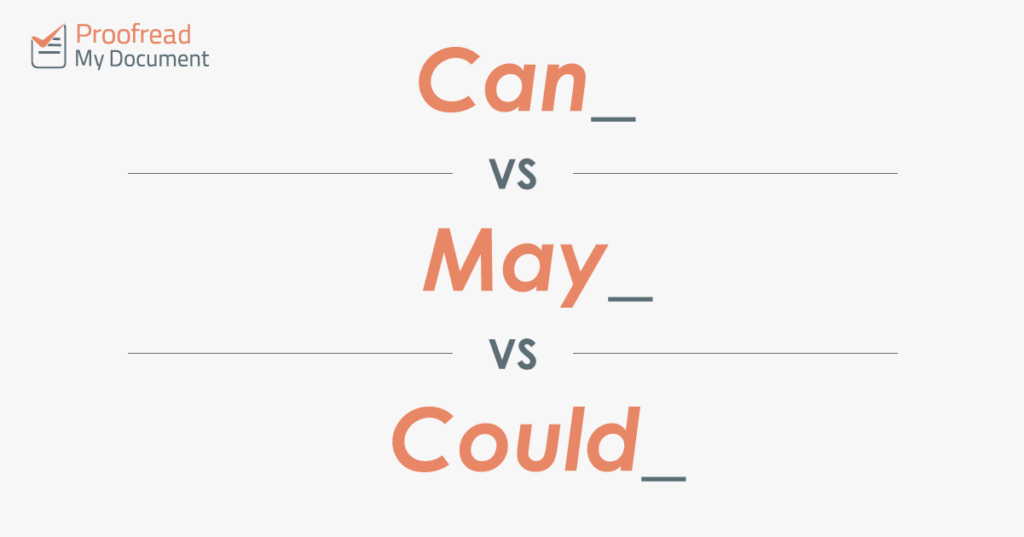For today’s blog post, we’re putting on our best suit and tie. That’s because we’re dealing with some formal English: specifically, the differences between ‘can’, ‘may’ and ‘could’.
These words are all common modal verbs (i.e. verbs that express possibility). They’re also often used interchangeably in everyday English. But is this correct? Or should we be careful not to mix them up? We take a look at your options.
Possibility
One key use of these terms is to express possibility. Each word indicates a different level of probability/certainty. ‘Can’, for example, suggests a strong possibility or a general truth:
Eating oranges can improve your health.
Here, for instance, using ‘can’ shows that this is a definite possibility. If we used ‘may’ or ‘could’ instead, we would seem less sure about the claim we’re making:
Eating oranges may improve your health.
Eating oranges could improve your health.
In these cases, we’re only suggesting a potential health benefit, so the claim is weaker.
Were we entirely sure of our claim, moreover, we could drop the ‘can’ altogether:
Eating oranges improves your health.
In this last sentence, we’re not just expressing a possibility; we’re stating a certainty.
Asking for Permission
The other main use of these terms is to ask for or give permission. This is where formality becomes an issue. When asking for permission, ‘can’, ‘could’ and ‘may’ all do the same thing:
Find this useful?
Subscribe to our newsletter and get writing tips from our editors straight to your inbox.
Can I have an orange? (Informal)
Could I have an orange? (More formal)
May I have an orange? (Most formal)
The difference is that ‘could’ and ‘may’ are politer. In particular, if you’re making a formal request for something, it is usually better to use ‘may’ than ‘can’.
Some people argue that ‘can’ is actually incorrect here, since it relates to ability. Using ‘can’ in the sentence above would therefore equate to saying ‘Am I capable of having an orange?’.
(Photo: Leigh Miller/flickr)
But there is no real basis for this, as ‘can’ has long been used to ask for permission. It is simply a matter of how formal you want to be when making a request.
Granting Permission
When granting permission, the same distinction between ‘can’ and ‘may’ applies:
You can have an orange. (Informal)
You may have an orange. (Formal)
However, ‘could’ drops out of the picture when granting permission. In this context, ‘could’ would imply possibility again. Were we to say ‘You could have an orange’, for instance, we’d simply be telling someone that having an orange is a possibility.
The exception here is discussing permission in the past tense, since ‘could’ is the simple past tense of ‘can’. Saying ‘Nobody could leave’ is therefore equivalent to saying ‘Nobody was permitted to leave’. In the present tense, though, ‘could’ denotes possibility, not permission.
